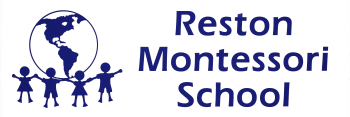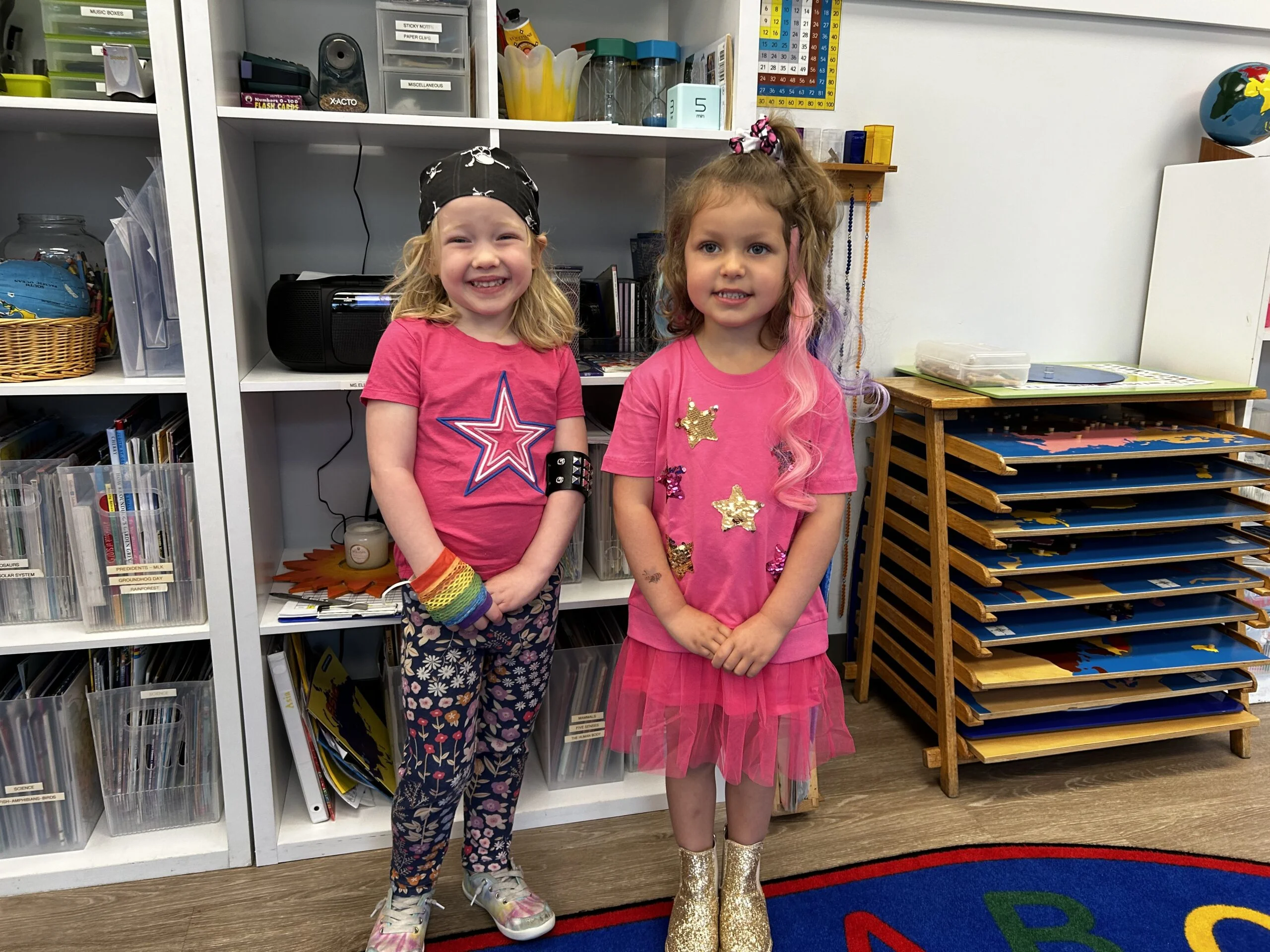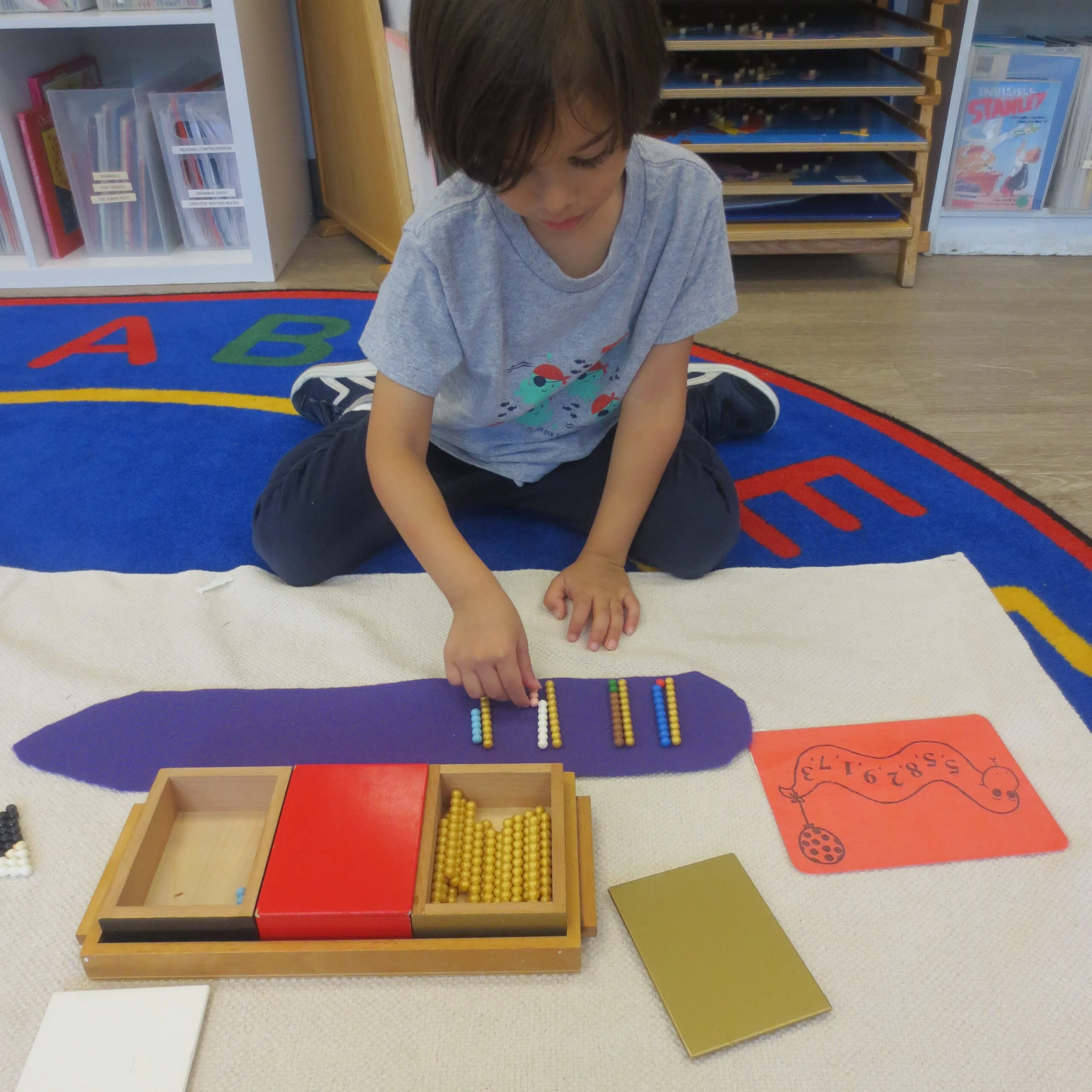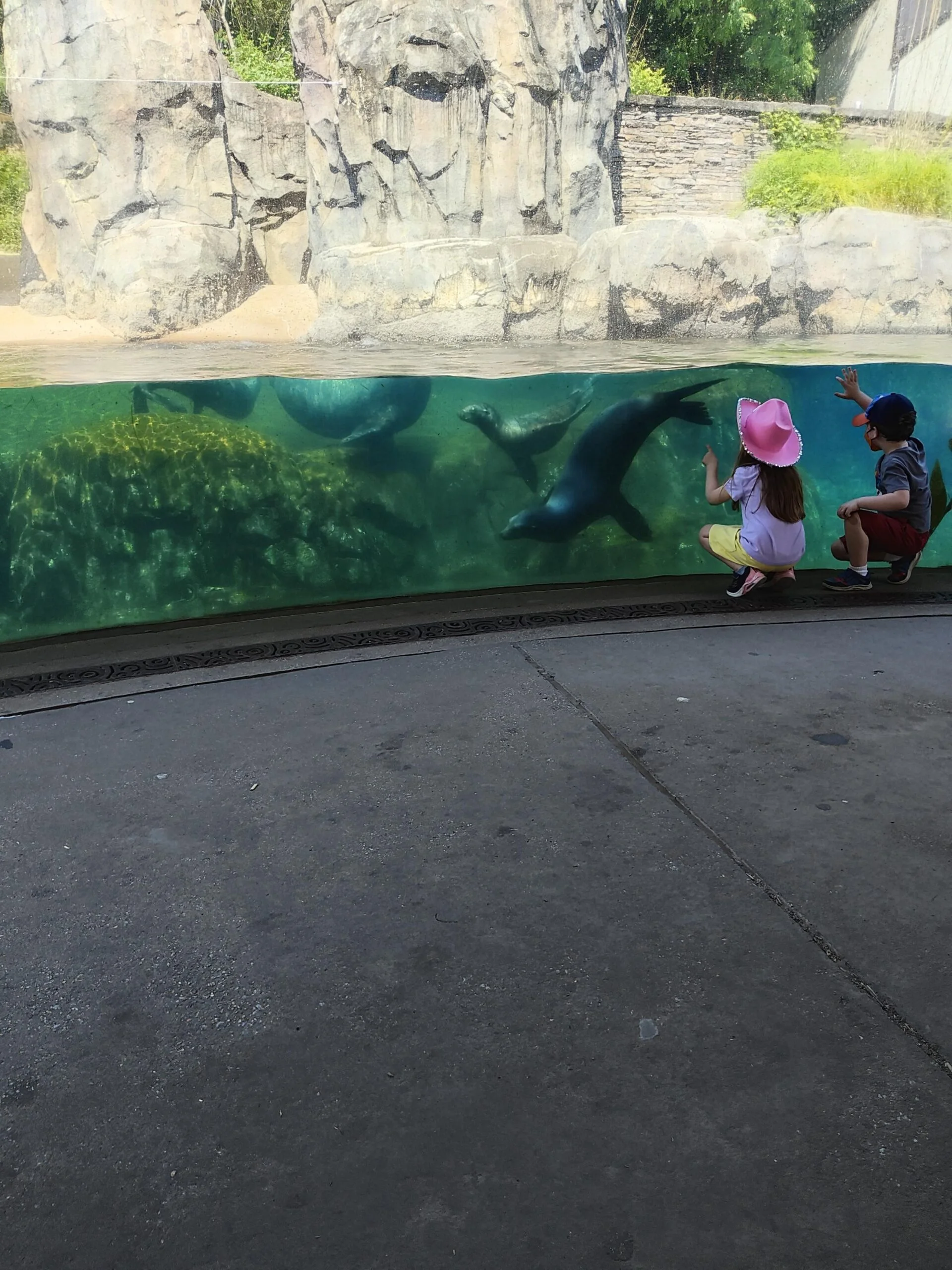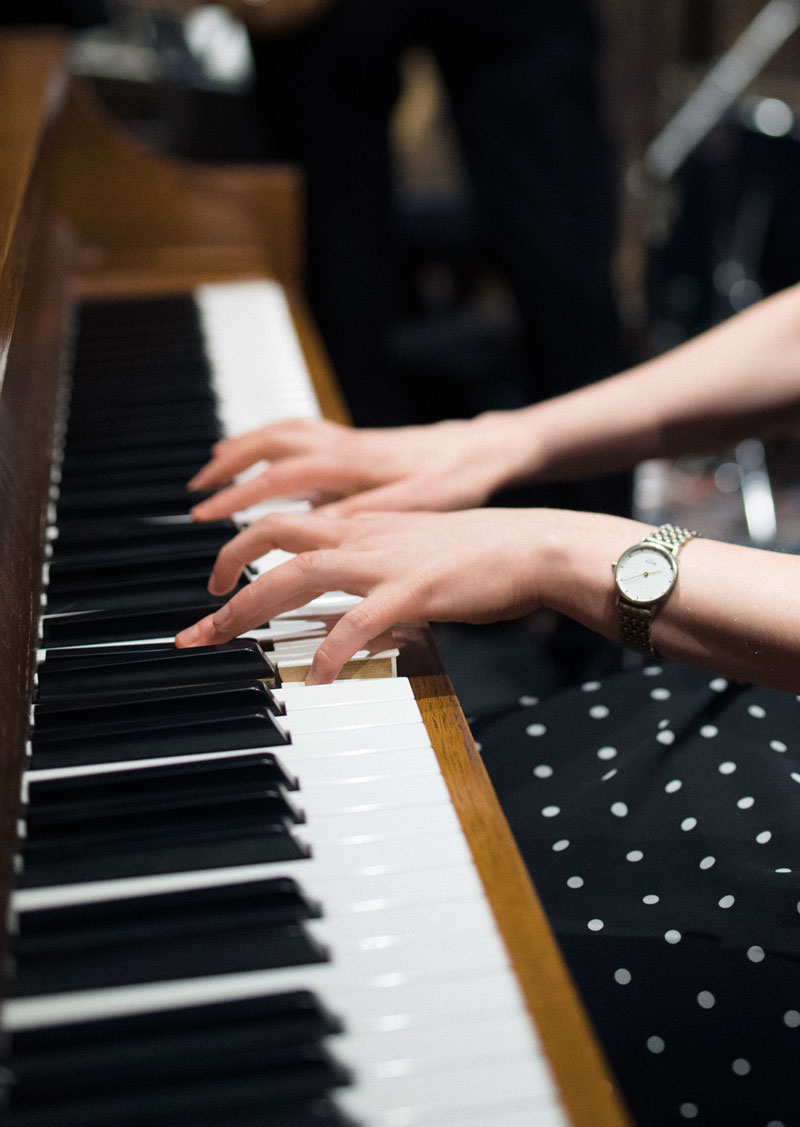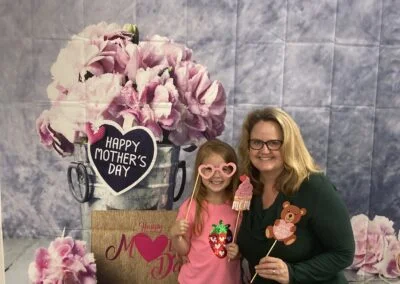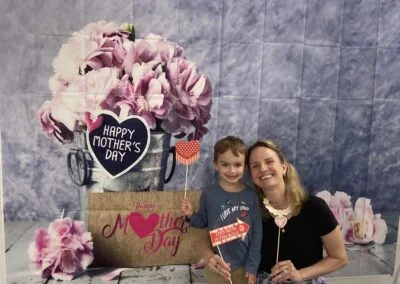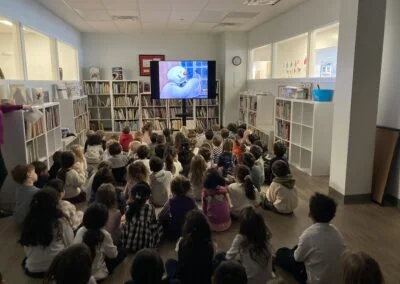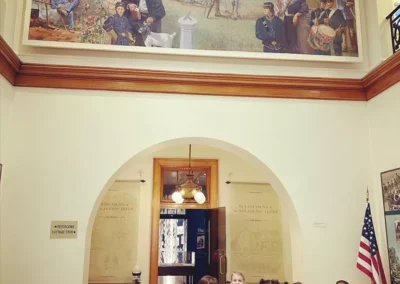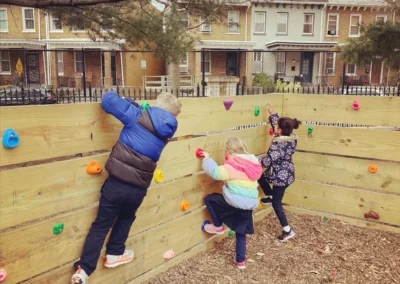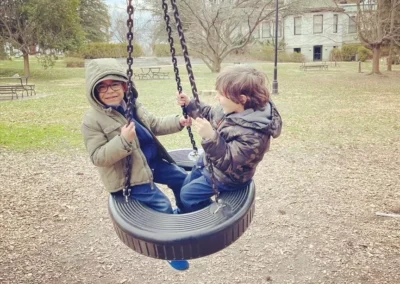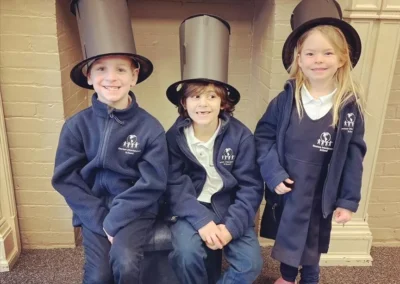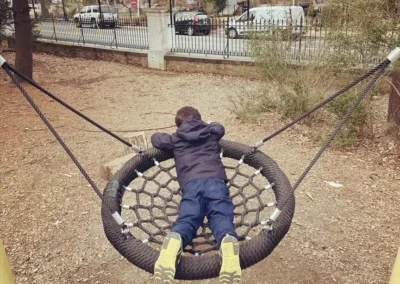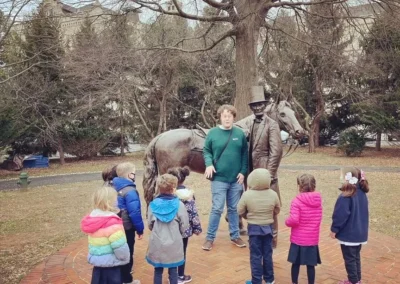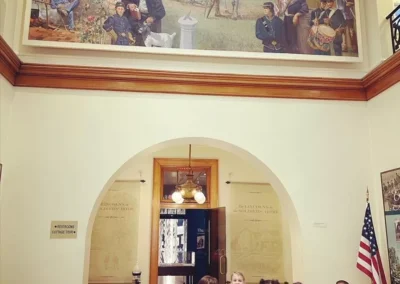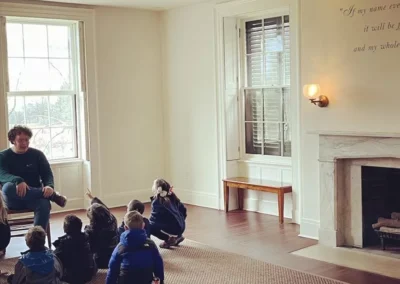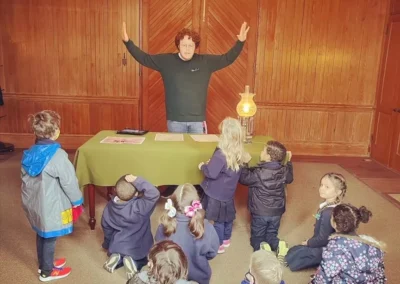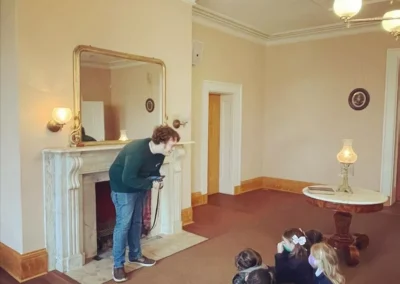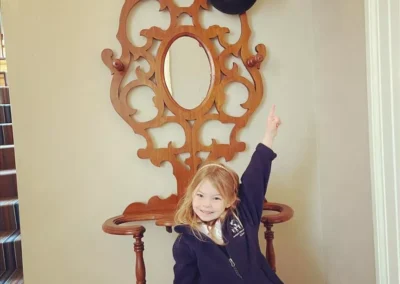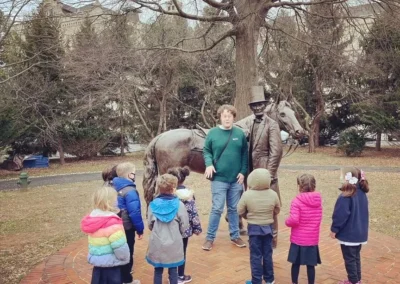Primary (3 - 6 Years)
Mind at it's Best ShapeThe hands,” wrote Dr. Maria Montessori, “are the instrument of man’s intelligence.”
From ages three to six, the child is in the period referred to as the Absorbent Mind.
Absorbent Mind.
During this time, he literally absorbs everything in his environment through sensorial exploration. By sensorially absorbing the surroundings, a child forms his personality and himself. He constructs his mind: his memory, power to understand, and ability to think through impressions gained from the environment.
In addition to sensorially absorbing his surroundings the primary-aged child is more responsive to certain learning experiences at particular times. Montessori calls these times Sensitive Periods, after which the opportunity for maximizing development is lost. Montessori identified Sensitive Periods for language acquisition, order, detail, sensorial exploration, writing, words, numbers, manners and courtesy, and precise movement. The Primary classroom is designed to accommodate the child in each of these areas as he is ready.
The School and the Society
By the time children reach preschool age, their actions have become purposeful and willful, and their focus turns to their peers. Exploration of the environment is of the child’s own volition. They explore the people, relationships, and new society of which he or she has become a member – the school. The child must be allowed to construct his mind in this way, for these are the pillars on which future learning is built.
The classroom is designed to appeal to the child. Everything is custom sized to facilitate the child’s independence and development. The Montessori teacher links the child to the materials and guides the child toward constructive activity, so that he may gleam from it all that he needs.
Core Curriculum
The core of the Montessori Primary Curriculum is made up of Practical Life, Sensorial, Language, Math, Science, Geography and Art.
Call For Inquiry
703-481-2922
Ask us a question
01. Practical Life
This includes daily living tasks, such as pouring juice, polishing shoes, sweeping, and buttoning a shirt. To the child, these are meaningful activities that involve caring for himself, other people, and the environment. They also help the child concentrate, expand his attention span, and improve hand-eye coordination.
02. Sensorial
These materials isolate a defining quality, such as color, size, sound, texture, or shape. They help to develop the child’s visual, auditory, and tactile senses. Some Montessori materials, such as the binomial cubes, are concrete representations of mathematical concepts that appear in later schooling.
03. Language
The language materials include objects and pictures to be named, matched, labeled, and classified to aid vocabulary development. Textured letters allow the child to feel and see the alphabet, while the moveable alphabet leads the child towards reading. Once the child begins to blend sounds to make words, a variety of materials are available, ranging from simple three-letter, short-vowel words to read to materials designed to teach long-vowel sounds, phonograms, and parts of speech. A wide variety of reading materials are used to gain proficiency and a love of reading.
Curriculum
Learning Focus
The obvious of education and future depends on how the child identify their true interest. Here the child is introduced to the basics of every academic subject.
Geography
Geography Children are introduced physical and cultural geography through the use of wooden puzzle maps, activities with objects from other countries, and international celebrations and snacks throughout the year. Songs, stories and games are incorporated into daily routines as we “travel” the globe visiting a different continent each month.
Art Painting, color mixing, collage, and printmaking are just some of the activities provided to show the care and use of art materials, to encourage creativity, and just to have fun!
Mathematics
Math is a concrete experience in the Montessori classroom. The children are constantly manipulating objects in their efforts to understand number concepts. The early materials are designed to teach the very basics, such as the quantity and symbols of the numbers one to ten. Spindle boxes allow the child to see what “nothing” or zero looks like. Moving toward the more advanced materials, bead bars teach concepts ranging from units, tens, hundreds, and thousands, to addition, multiplication, subtraction and division. These traditional materials are supplemented with teacher-made games and materials for learning a variety of simple concepts, such as time, money, and fractions.
Sciences
Science activities are nature-based, and include the study of vertebrate and invertebrate animals, a variety of plant types, and environments around the world that support this wide range of flora and fauna. Love and respect for all life are emphasized.
Music
In the primary program children participate in a music class once a week. The weekly lessons provide an opportunity for singing, movement, listening, exploring musical instruments, and exploring musical concepts. Each lesson concludes with a demonstration on a musical instrument. Kindergarten students are introduced to reading and “writing” musical notation and are taught to play several simple musical instruments.
Testimonials
What Parents are Saying
Parent /Gaurdian on Greatschools.org
We’ve been part of the RMS community for the past 8 years, and both my children have absolutely thrived at the school (one is in kindergarten there now, and the other was there through third grade). The teachers are dedicated and caring, the schoolwork is interesting and challenging, and the specials offered are excellent (French, art, music, etc). The school truly feels like one big family, and it’s a really nurturing environment for kids of all ages and backgrounds. I especially like the cultural diversity of the school, and the fact that the teachers and staff do such a good job honoring and teaching about a wide variety of holidays and cultural practices. In reading some of the other reviews, I have to clarify that the school *has* had quite an effective COVID mitigation strategy in place. What the previous poster neglected to say is that the teacher/student COVID cases mentioned in that post were literally the only two COVID cases in the school all year. The school *did* indeed communicate those cases to the entire school via email. RMS went to great lengths, in fact, to minimize class size and create new teaching pods in favor of smaller groups when COVID first started. They also have hand sanitizer everywhere, kids wash their hands often, and all staff and students wear masks indoors. Overall, we truly love the school and feel that it’s been a great, supportive environment that’s helped both our kids become the best version of themselves from an academic, social and emotional perspective.
A review by parent on greatschool.org
My children have been at Reston Montessori (RMS) since they were only a few months old. After touring many schools in the area, from the moment we walked into RMS it was nurturing, kind, welcoming, adaptable, and have gone above and beyond for our children. The RMS teachers and staff are not only excellent and nurturing teachers but the curriculum and structure is far and above others. We have also experiencing some issues with the owner, but my children are not learning from the owner, they are learning and with teachers and their peers everyday. I would also add in the five years we have been at RMS my children have not experienced any turnover in teachers or aides in the classroom.
A Parent's review on greatschools.org
I love Reston Montessori School. The teachers have fostered a love of learning in both of my children. We have found it to be academically challenging and nurturing at the same time.
